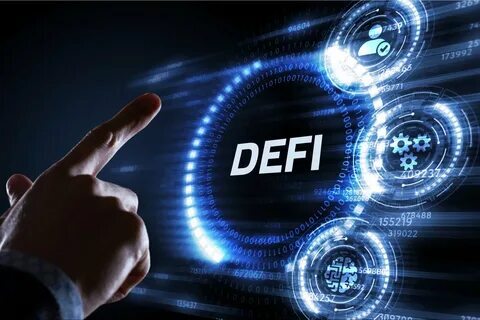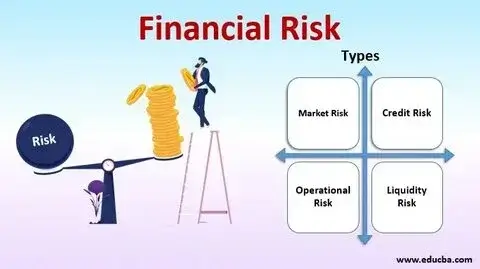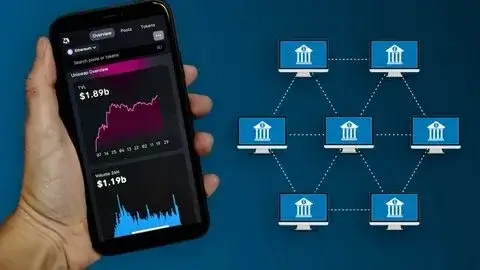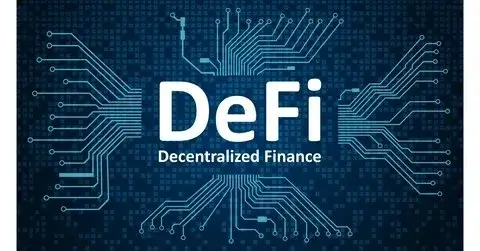Define the transformative world of Decentralized Finance (DeFi) with this beginner-friendly guide. Study how DeFi works, its key profits, and how it tasks traditional banking systems. See the risks, chances, and why DeFi is shaping the future of finance. Flawless for anyone looking to understand the basics of this radical financial revolt
· How Does DeFi Work?

Decentralized Finance (DeFi) purposes through blockchain technology, mostly on networks like Ethereum. It uses clever contracts, which are self-executing programs that run routinely when predefined situations are met. These smart contracts remove the need for mediators, allowing users to straight interact with economic services such as lending, borrowing, trading, and earning interest.
DeFi requests, also known as DApps (Decentralized Applications), provide safe and clear financial transactions. All transaction is recorded on the blockchain, certifying that it’s openly verifiable and resistant to tampering. Users interact with these services via digital wallets, making DeFi available globally to anyone with an internet connection.
By removing traditional gatekeepers like banks and brokers, DeFi democratizes contact with financial tools and services, allowing individuals to have full control over their funds.
· Key Benefits of Decentralized Finance (DeFi)

- Global Availability: DeFi permits anyone with an internet connection to contact financial services, any way of physical location or financial background.
- Elimination of Intermediaries: DeFi removes the need for banks or brokers, allowing peer-to-peer transactions and decreasing the need for central institutes.
- Transparency: Every transaction is recorded on a public blockchain, certifying full brightness and reducing the risk of scams or fraud.
- Cost Efficiency: By bypassing intermediaries, DeFi expressively lowers transaction fees, making financial services cheaper.
- Financial Control: Employers retain full ownership of their funds, managed directly through safe digital wallets.
- Innovative Opportunities: DeFi announces new ways to grow wealth, such as staking, harvest farming, and liquid mining, offering diverse paths for financial growth.
- 24/7 Availability: Distinct traditional financial systems with limited operating hours, DeFi platforms are accessible around the clock.
DeFi is transforming the financial network, providing a decentralized, inclusive, and original style of managing money.
· Risks of Financing in Decentralized Finance (DeFi)

- Market Volatility: The cryptocurrency market is highly unstable, and quick price variations can lead to major losses for DeFi investors.
- Smart Contract Vulnerabilities: Bugs or coding errors in smart contracts can be abused by hackers, causing in likely loss of funds.
- Lack of Regulation: DeFi operates in a free environment, growing the risks of scams, fraud, and variable platforms.
- Liquidity Risks: Some DeFi platforms may lack liquidity, making it difficult to finish transactions or pull out funds.
- Technical Complexity: Thoughtful and using DeFi platforms can be challenging for beginners, potentially leading to mistakes or misuse of funds.
- Impermanent Loss: Providing fluidity in DeFi protocols can result in transitory loss, where users may lose value related to simply landing their assets.
- Phishing and Security Risks: Users must protect their wallets and private keys to avoid phishing attacks or illegal access to their funds.
While DeFi offers many benefits, it’s crucial for users to manner thorough research, judge risks, and implement proper security measures to navigate the decentralized finance network safely.
· How DeFi is Converting Traditional Funding

- Eliminating Intermediaries: Customary finance trusts banks, brokers, and other mediators to smooth transactions. DeFi removes these traders by enabling peer-to-peer relations through blockchain technology, reducing costs and increasing efficiency.
- Enhanced Accessibility: Disparate traditional financial systems that exclude unbanked people, DeFi provides global access to financial services for anyone with an internet connection, breaking down blocks related to geography, income, and certification.
- Transparency and Trust: DeFi platforms operate on public blockchains, where every transaction is recorded and visible. This slide level decreases the risk of scams and builds trust linked to cloudy old-style banking systems.
- 24/7 Operations: Traditional financial systems work within limited business hours and are often closed on personal days or holidays. DeFi platforms run nonstop, donating round-the-clock financial services.
- Decentralized Governance: Many DeFi platforms are governed by decentralized communities through token-based voting systems, giving users more inspiration over platform decisions likened to central banks.
- Innovation in Financial Products: DeFi presents new financial ideas like yield farming, liquidity withdrawal, and tokenized assets, which are not naturally available in traditional finance.
- Lower Costs: By automating processes with smart deals and removing mediators, DeFi decreases transaction fees, making financial services cheaper for users.
DeFi is reforming the financial land by offering a decentralized, complete, and innovative other to traditional funding systems, allowing persons with more control and chances.
The End Line
Decentralized Finance (DeFi) is transforming the way we relate with financial systems, offering a more handy, transparent, and complete alternative to outmoded banking. While it brings many benefits, such as removing mediators, reducing costs, and developing innovation, it also comes with risks like market instability, lack of regulation, and technical difficulties.
For those keen to discover DeFi, it’s essential to know its workings, assess possible risks, and accept secure practices. With careful investigation and a strategic approach, DeFi can serve as a powerful tool to take control of your financial future and contribute to the changing digital economy.
